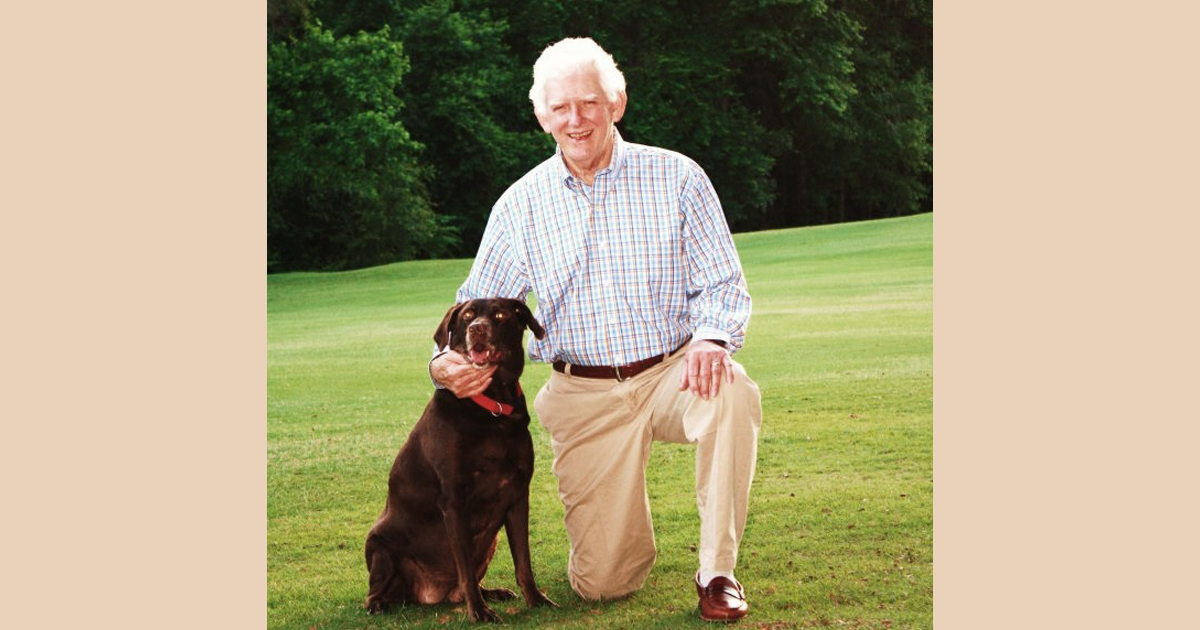Pictured: Nova and Dalton Floyd
Originally Published in the June 2009 issue of Zest! – Georgetown County’s Premier Publication for the Young and Active After 50 – by Bill Farley, Night Writer Services
He may not have gone barefoot, smoked corn silk and fished with a bamboo pole, a piece of string and a bent pin, but prominent Surfside Beach attorney, education advocate, and philanthropist Dalton Floyd had a very idyllic and all-American childhood in rural Lake City in Florence County, SC.
His family had an auto dealership and also a farm, and he remembers spending many summers working the fields, first with truck produce and then with tobacco.
At school, he was a four-letter man – football, basketball, baseball, and track – and played the saxophone. He also attained the rarefied ranks of Eagle Scout.
In their close-knit community, “we had lots of support and you couldn’t go anywhere without folks stopping you to talk about the most recent game. It was a great place to grow up.”
Proud of his small town origins, Dalton Floyd is quick to point out that Lake City had produced some high achievers, among them Darla Moore, for whom USC’s School of Business is named, and his friend Bill Odom, who served as chairman and chief executive officer for Ford Motor Credit Company for many years before retiring to his hometown. With refreshing humility, he doesn’t list himself among the community’s success stories, although his accomplishments belie that omission.
When his high school years ended, Floyd moved on to the University of South Carolina, where he would be the first member of his immediate family to become a college graduate. His father had gone to Clemson for one year until financial pressures at home forced him to drop out and go to work. At USC, Dalton had hoped to continue his successful high school athletic career. But, as a mere 6′ tall basketball center enrolled at a university whose student body was many times larger than the entire population of his home town, he quickly realized his horizons were limited.
Unwilling to attend USC and not receive at least one varsity letter, he switched his focus to swimming and through sheer perseverance and dedication earned “enough third place finishes in the breaststroke and butterfly to letter.” To this day, he admitted ruefully, he no longer enjoys recreational swimming.
Upon graduation, he received his commission from the U.S. Air Force. He had intended to become a pilot, but received a deferment to attend law school, also at USC. With a Juris Doctor and an L.L.B. cum laude under his belt, he became a captain in the Judge Advocate General’s office. Though he had never traveled far from home, he had a desire to see the world and through a friend and fellow attorney who had served in JAG and had contacts, he got his chance. His first and only posting in service – Turkey!
“It was an interesting tour. “ he recalled. “I worked with a lot of Muslims and spent a good deal of time in Turkish courts, primarily defending Americans who had gotten in trouble in that country.”
After his three year military commitment ended, Dalton Floyd returned home and joined another attorney in a practice back in Lake City. There he honed his skills as a litigator while also serving as an Assistant Solicitor for Florence County. At that time, courts were in session only 12 to 14 weeks a year, which is when Floyd served, “only trying cases. It gave me great experience.”
His first marriage ended in 1973 and Floyd decided to move to the beach, establishing his new home and new practice in Surfside Beach (although he still maintains an office in Lake City).
Through the 1990s he served primarily as a trial lawyer, and saw his client list steadily increase.
While he admits he loved litigation, he eventually felt he was getting burned out from the pressures of the court room. “But, being in a small firm, I did everything anyway, so it was not difficult for me to transition to a corporate business model involving other matters such as commercial real estate and estate planning.”
Along his career path, Floyd also mastered a sub-specialty – golf law. In the early 1980s one of his clients was the president of the PGA of America, and Floyd began representing the Carolina Section of the PGA. “I’d always loved golf,” he said, “even though Lake City didn’t even have one course when I was a kid.”
The 1990s were the heyday for golf and he soon found himself giving seminars for the PGA of America, the National Golf Owners Association, and the National Superintendents Association.
While to the layman the game of golf might seem best characterized by the beauty of its courses and the Zen-like qualities of the “perfect shot”, in fact golf is likely the most litigious sport in America. So, Dalton Floyd’s expertise was in great demand, and his observations on the subject have been spotlighted in golf and legal publications as well as the New York Times and Forbes magazine, where he was quoted extensively as a leading authority on errant ball liability cases.
As for his own mastery of the links, Floyd ruefully confessed that his handicap has edged up from and eight to a thirteen, while adding the qualifier that, “I really don’t get to play all that much anymore.”
In his other business activities, Floyd was one of the organizers of, and served as, general counsel to three financial institutions – Waccamaw State Bank, Patriot Federal Savings and Loan, and Sunbank – and was the Chairman of the Board of Sunbank. In 2006, Sunbank was sold to South Carolina Bank and Trust, and he now serves on that institution’s board of directors.
But, Dalton Floyd’s life has hardly been devoted to simply practicing the law and becoming prosperous. He and his wife, Linda, successfully raised four children, three boys and a girl, and both Floyds have been active in giving back to their community.
“Higher education has been a passion of mine,” he said. Driven by that passion, he served on the South Carolina Education Commission for seven years, chairing it for five of those years. His tenure on the Commission was so distinguished that Gov. Mark Sanford awarded him the “Order of the Palmetto”, the state’s highest honor for service.
While on the Commission, he reviewed the recommendations of an outside consulting firm that stated that the best way to raise the education level in the state – admittedly a low one at best – would be to “improve the pipeline”, that is, to work with students from grade school through high school to secure a much higher high school graduation rate. Only by doing so would the state’s public colleges and universities continue to thrive.
Floyd tried to convince the state legislature to mandate a service learning program at the college level for students receiving scholarship monies through the lottery. Columbia turned a deaf ear to the proposal, so Floyd decided to put a pilot mentoring program together himself at Coastal Carolina University.
With a $250,000 endowment from the Floyd’s, the Dalton and Linda Floyd Family Mentoring Program now involves some 350 college students working primarily with fourth and fifth graders in Horry and Georgetown counties.
“We were focused on helping the children, but what happened is that it helped the college students as well. It’s a win-win. Many of the undergraduate students have told us that mentoring has meant as much to them as anything else they have done in college.”
Another serious issue the Floyds have confronted is campus violence. Spurred by an incident in which one of their sons was attacked and brutally beaten, requiring multiple surgeries essentially to rebuild his face, they spearheaded the first annual campus safety forum for all the state’s institutions of higher learning, public and private. The tenth annual forum was held in 2008 in Myrtle Beach and the forum was also named for Linda Floyd in acknowledgment of her hard work and dedication to the cause.
Asked why he has committed himself to numerous civic and philanthropic activities, Dalton Floyd recalled an incident from his youth. The local Rotary Club ran a competition among the Boy Scouts to achieve the most merit badges. The winner would be sent all expenses paid to the annual Jamboree, to be held in California. Dalton won the competition, but his father said, “I can afford to send you myself. Why don’t we let the boy who finished second and whose family can’t afford to send him accept that award.” And, so they did.
“That made a big impression on me at that age. My father was one who always wanted to help people and give back. That’s probably what started me on the path of wanting to help people and give back as well.”
Dalton Floyd’s life is far more complex and sophisticated than his boyhood in Lake City. But, there are still those self-effacing moments when this very successful attorney, activist, and humanitarian can sound just a bit like that storybook kid shufflin’ barefoot down the dusty country road to the ol’ swimmin’ hole.




